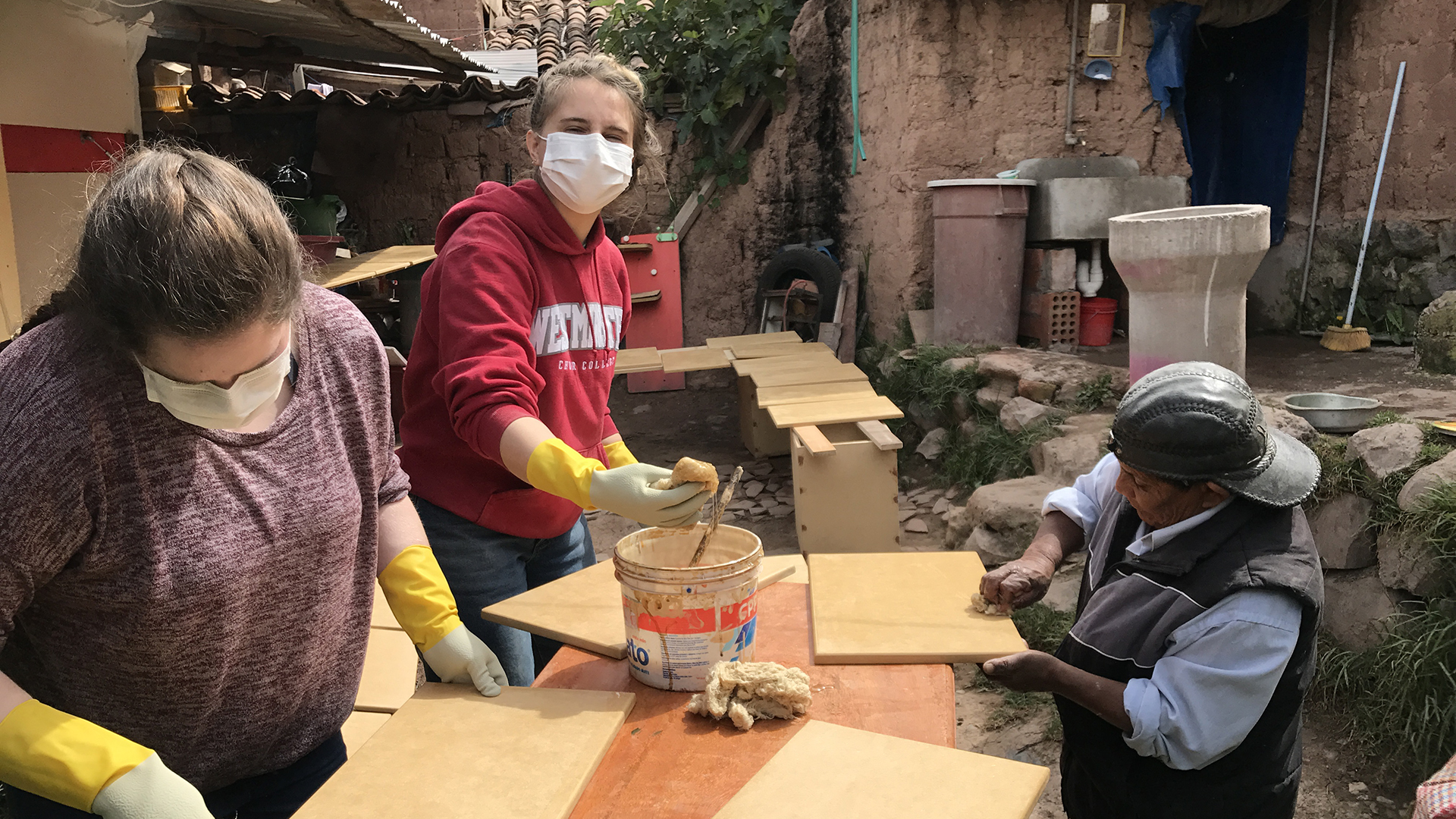Thursday, Jun 22, 2017
Students worked with carpenters to improve lives of Peruvian schoolchildren
by Robert Leitner ’17
In a trip defined by new experiences in a foreign culture, Rider University students who had hardly swung a hammer in their lives worked side by side with professional carpenters to build lockers for schoolchildren this May in Peru.
"I am someone who does not have a background in carpentry, but I learned how to navigate power tools and work in an unfamiliar field with carpenters who spoke a different language than me," says Ashley Leeds, a senior psychology major with minors in social work and gender and sexuality studies. "I didn't allow the language barrier to interfere with my work, which added character to the special experience."
Leeds was one of five Rider students who traveled to Cusco, Peru, from May 14 to 24 to take part in one of the University's service learning trips, where students volunteer their time to improve the lives of the less fortunate. Accompanied by a Rider trip leader, students participate in services that help the local community while experiencing key cultural aspects of the country, giving them a well-rounded understanding of their destination. In Peru, the service side of the trip required students to learn a variety of carpentry skills while building lockers for children at the Wawacha School, a nursery school that provides education, social and recreational stimulation, as well as food security, for children who come from poor families in marginalized areas of Cusco.
"When we delivered the lockers to the students, they prepared traditional songs and dances to express their gratitude to us, which was not only adorable but also extremely humbling,” Leeds says.
Service learning is a cornerstone of the engaged learning experience at Rider University, where students are encouraged to link their passion with a sense of purpose. Rider students contribute more than 30,000 hours of community service annually to worthy causes on campus and beyond, including globally. At any given time, one of every 10 Rider students is studying somewhere in the world.
In addition to their service work, students on the Peru trip learned about different aspects of the country's culture including the local economy and the influence of the Incas on modern day customs. They also took a traditional Peruvian dance class and an authentic Peruvian cooking class.
“I stepped outside of my comfort zone and truly embraced the meaning of service learning as an out-of-the-classroom educational journey,” Leeds says. “I sampled alpaca, which is a local dish, and I cooked foreign food at a cooking class instructed by professional chefs.”
Before leaving Peru, the last activity was to visit the breathtaking site of Machu Picchu and the historic Ollataytambo, of which Leeds notes the “serenity” of nature.
Next year’s Service Learning projects will be in Greece from May 13 to 23, 2018, and in Morocco from June 18 to 28, 2018.
Similar to the Service Learning project in Peru, the trips will begin with four days of service mixed with different cultural events. In Morocco, Rider students will help build bunk beds for homeless children, giving them a place to sleep at night
Both the Greece and Morocco trips feature excursions after the service portion. In Greece, students will visit Santorini Island with a Caldera boat ride to a volcano, and excursions in the Morocco trip includes camel riding through the desert.
Volunteering abroad often generates selfless learning experiences that enhance students’ perspective of life outside the U.S. Returning students often feel a sense of accomplishment and become more mindful of cultural differences between countries.
"These International Service Learning trips are so important because they help participants develop a sense of cultural humility," says Joan Liptrot, assistant director for Service Learning Campus & Community Engagement. "We see what life is like for often the most vulnerable members, which is far different than what you experience on vacation. Students and staff explore how different our own culture may be from others, while at the same time, they discover how much we have in common with people around the world regardless of their language, religion or socioeconomic status."

